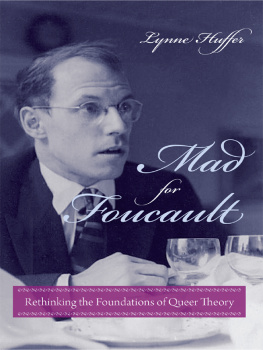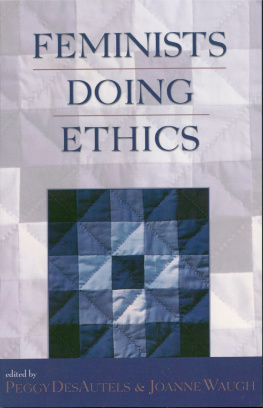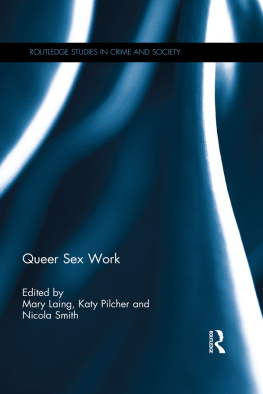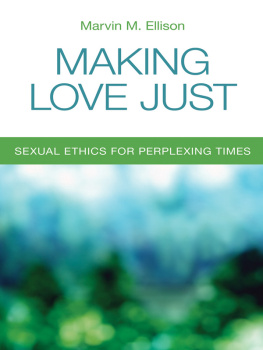ARE THE LIPS A GRAVE?
ARE THE LIPS A GRAVE?
A Queer Feminist on the Ethics of Sex
Lynne Huffer
Columbia University Press
New York

Columbia University Press
Publishers Since 1893
New York Chichester, West Sussex
cup.columbia.edu
Copyright 2013 Columbia University Press
All rights reserved
E-ISBN 978-0-231-53577-9 (e-book)
Library of Congress Cataloging-in-Publication Data
Huffer, Lynne
Are the lips a grave? : a queer feminist on the ethics of sex / Lynne Huffer.
pages cm
Includes bibliographical references and index.
ISBN 978-0-231-16416-0 (cloth: alk. paper)ISBN 978-0-231-16417-7 (pbk.: alk. paper)ISBN 978-0-231-53577-9 (e-book)
1. Feminist theory. 2. Queer theory. 3. Sex. 4. Ethics. I. Title.
HQ1190.H84 2013
306.7601dc23
2013004397
Cover Image: Jennifer Yorke, Venus, 2012, collage on paper
A Columbia University Press E-book.
CUP would be pleased to hear about your reading experience with this e-book at .
References to websites (URLs) were accurate at the time of writing. Neither the author nor Columbia University Press is responsible for URLs that may have expired or changed since the manuscript was prepared.
Contents
This book feels a bit like a palimpsest of my life over the past fifteen years. It is difficult to reconstruct all the exchanges that helped me to transform a loosely related set of ideas into something coherent. But let me attempt to acknowledge those who have accompanied me on the travels I trace here.
First and foremost, I want to thank Cynthia Willett, Shannon Winnubst, Gyan Pandey, and Ruby Lal for their incisive readings of the entire manuscript. Cindys intellectual friendship has been one of the most enriching Ive enjoyed in my twenty-five years of teaching and writing. Our conversations about the ethics of eros in particular have pushed me to be both more rigorous and more creative in my thinking about what such a concept might mean. Cindys generosity and philosophical brilliance have made this a better book than it would have been without her. Shannon offered support, critique, wisdom, and especially humor exactly where they were needed. I am also grateful to Gyan and Ruby, my dear Emory writers group members, who asked crucial questions along the way and inspired me to keep writing even when I was convinced I had nothing of interest to say. A special thanks to my artist book collaborator Jennifer Yorke for offering her collage, Venus, as an image for the cover.
was originally published in GLQ, and I am especially grateful to former GLQ editors Ann Cvetkovich and Annamarie Jagose, as well as the two anonymous readers, for their rigorous review of the essay. I also want to thank Penelope Deutscher for her early encouragement and her insights into how to think Irigaray with Foucault. I am grateful to the Womens Caucus for the Modern Languages for honoring the GLQ essay with the 2011 Modern Language Association Florence Howe Award for Feminist Scholarship in English.
I began writing the argument that became , both Michael Moon and Thomas Foster offered insights into queer culture, Foucault, and the history of sexual practices for which I am deeply grateful. A special word of thanks goes to Michael for his friendship and collegial support at Emory.
I am also grateful to Martha Fineman and the Feminism and Legal Theory Project at the Emory Law School for providing the occasion to begin exploring the issues that resulted in as well as for his friendship and ongoing support of my work. I also want to acknowledge his leadership at Emory in his position as director of Studies in Sexualities. A special word of thanks to Elizabeth Wilson for fabulous conversations about norms, the repressive hypothesis, and intersectionality. Emory has proven to be a fruitful environment for thinking and practicing a queer feminism.
. I also gained enormously from conversations with Carla Freeman about work, social reproduction, and affective labor in a neoliberal economy.
A number of scholars continue to inspire me to think and write about Foucault. I am especially grateful to Amy Allen, Penelope Deutscher, James Faubion, Laura Hengehold, Kyle Jensen, Mark Jordan, Colin Koopman, Kyoo Lee, Ladelle McWhorter, Mary Beth Mader, Jana Sawicki, and Shannon Winnubst for stimulating work and ongoing exchanges. A special word of appreciation goes to the organizers of PhiloSOPHIA: A Feminist Society, which has become an especially important site for me for queer feminist reflections on the ethics of sex.
I want to express my appreciation to Emory University and former Dean Robert Paul for providing the leave time to complete the book manuscript during the 20102011 academic year. I am extremely grateful to my colleagues and students in the Womens, Gender, and Sexuality Studies Department at Emory: I could not ask for a more collegial and supportive department. I also want to thank Cecelia Cancellaro, my agent, for her efforts in helping me to transform a set of essays into a book and find it a home. This is the second time I have worked with Columbia University Press and, once more, the home is a happy one. I am especially grateful to Wendy Lochner and Christine Dunbar for their editorial efforts.
Finally, Id like to thank my family and my heart friends (you know who you are), both near and far, who have seen me disappear into the vortex of writing more times than theyd like to count. Im grateful to them all, including the furry ones and the feathery ones. To Tamara: more than anyone, you have lived through this book in countless ways. Thank you for all youve done to help us create a queer feminist life to be cherished.
I am restoring to our silent and apparently immobile soil its rifts, its instability, its flaws; and it is the same ground that is once more stirring under our feet.
Michel Foucault, 1966
This book is a weave of voices: a crazy cats cradle, some might say, of my own decades-old thinking about sex. Each of its chapters tells a different story about contemporary sexual lives that unfold in a variety of spaces: in classrooms and academic journals; at political rallies; in deserts, courtrooms, and grocery stores; in archives, sex clubs, and bedrooms. Taken together, the chapters trace the shifting trajectory not only of my thinking but also of an intellectual field. The result is a journeysometimes zigzagging, sometimes twistedthrough a land I call queer feminism.
On the most basic level, the book is motivated by a simple question: what does queer feminism have to offer now? Some readers may think that contemporary scholarship on sexuality has nothing new to say, that sexual thinking has turned into business as usual. They may argue that not only have feminist and queer studies been institutionalized as discrete fields of knowledgethrough everything from doctoral degrees to an academic publishing niche to a canonical list of greatest hitsbut also that many of the concepts generated by feminist and queer thinkers over the past thirty years have seeped into the lingua franca of culture at large. And they may wonder, rightly: what does queer feminism bring to sexual thinking and practice today that is surprising and transformative?
A Genealogical Approach to Queer Feminism
Before introducing the themes of the book, let me say a word about the philosophical perspective that informs my genealogical approach to queer feminism. The Foucauldian term genealogy has become pervasive in contemporary critical discourse, although it is often used, contra Foucault, to denote the tracing of influence or lines of filiation. Foucault distinguishes genealogy from the continuities that characterize history writing: genealogy eschews the search for origins and reconfigures the past as disparate, discontinuous, and radically contingent. Although many perceive a distinct break between Foucaults genealogical approach of the 1970s and his earlier archeological period, this sense of rupture has been overstated. It is clear that Foucaults object of analysis remains the same throughout his life: discourse in its archival form.
Next page






